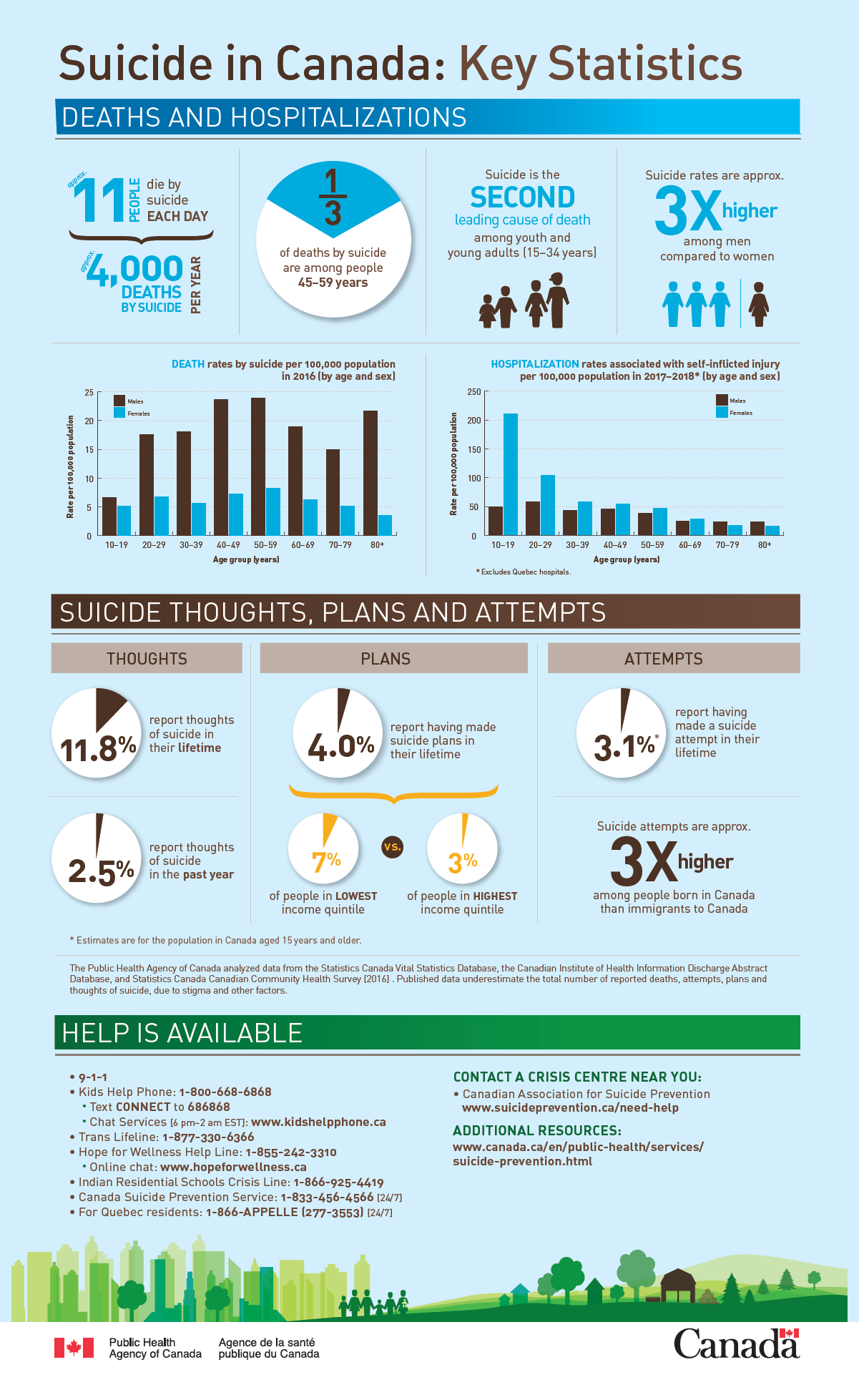
News & Events

September is Suicide Prevention Awareness Month – an important yearly initiative promoting understanding about suicide, and supporting those impacted by a suicide attempt or loss. The hope of the initiative is to reduce incidents of self-harm by increasing public knowledge about the warning signs of suicide, where to access necessary resources, and to encourage open communication, as too often those struggling are unable to express their feelings or history with suicide out of fear of being stigmatized. While it may be a difficult and sometimes uncomfortable topic to discuss, it is one that must be talked about more. This is because of stats like these:

It is important to understand that these were the stats before the global pandemic, which tragically has caused a surge in mental health struggles and suicidal thoughts. In 2019, 2.5% of Canadians reported having had recent suicidal thoughts or feelings. As of May 2020, this number is believed to be closer to 1 in 20 Canadians (6%); this is according to a new nationwide survey on the mental health impacts of COVID-191.
Emily Jenkins, lead researcher and professor at UBC stated “the pandemic is widening persistent mental health inequities and making things worse for those who were already vulnerable due to experiences of marginalization…when we strain all the parts of daily living — healthcare, childcare, schooling, job security — we see the direct, negative effects on people’s mental health.” 1
So, What Can Be Done?
There’s no question that the pandemic has caused an immense amount of stress for many people across the world, with young people being no exception. It is important that we stand together and remind one another that we are not alone. We must stay vigilant to warning signs, and to check in on loved ones whenever we can – particularly those that may be most vulnerable (ie. individuals with pre-existing mental health struggles, parents with young children, members of the LGBTQ2S+ community, Indigenous community, the elderly, and lonely, etc.). We want to ensure everyone knows that there are people and resources available to support them.

Within our foundation for example, over 75 Ambassadors have been safeTALK certified, helping them become suicide-alert and feel more prepared to support their peers. 4 of our leaders have also become ASSIST certified, allowing them to intervene should someone be experiencing suicidal thoughts.
Not to mention Cam’s Kids is partnered with Canada’s only national support service – Kids Help Phone (and their sister company Good2Talk). By texting the word “CAM” to the number 686868, any young person in Canada can immediately be connected with a trained crisis responder. If you prefer to speak over the phone or chat online, there are services available for you as well! You can find all of their resources right here on our website. (If you are in crisis - click here).
Our website is also filled with tips and tools for managing anxiety and stress.
How To Be Helpful When You Suspect Someone May Be Suicidal3
Take all threats or attempts seriously
Be aware and learn warning signs of suicide
Be direct and ask if the person is thinking of suicide. If the answer is yes, ask if the person has a plan and what the timeline is so you can then deal with the situation accordingly.
Be non-judgmental and empathic
Do not minimize the feelings expressed by the person
Do not be sworn to secrecy…seek out the support of appropriate professionals
Ask if there is anything you can do
Draw on resources in the person’s network
Do not use clichés or try to debate with the person
In an acute crisis take the person to an emergency room or walk in clinic or call a mobile crisis service if one is available
Do not leave them alone until help is provided
Remove any obvious means (e.g. firearms, drugs or sharp objects) from the immediate vicinity
Remember, you are not alone. Someone is ALWAYS here to help.
If you are in crisis, click here.
References
- https://www.ncbi.nlm.nih.gov/pmc/articles/PMC7236718/pdf/main.pdf
- Adam Sunderland and Leanne C. Findlay, “Perceived Need for Mental Health Care in Canada: Results from the 2012 Canadian Community Health Survey – Mental Health,” Statistics Canada Health Reports 2.9 (2013)
- International Association of Suicide Prevention http://www.iasp.info/resources/Helping_Someone
- https://suicideprevention.ca/im-concerned-about-someone/

Don't see what you're looking for? Send us an email!
©Copyright 2024 Cam’s Kids powered by Kids Help Phone
Not-for-Profit Organization. B/N: 921508-5
Thanks for visiting Cam's Kids. Please remember...
Cam's Kids is not a service provider.
If you are in crisis, please call 911 or go to your nearest emergency department. For free, confidential counselling, contact Good2Talk or Kids Help Phone.
Post-secondary students: find your local crisis resource here.





